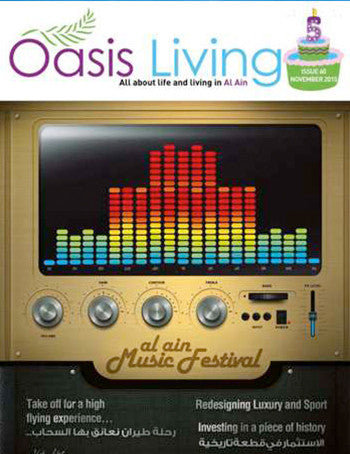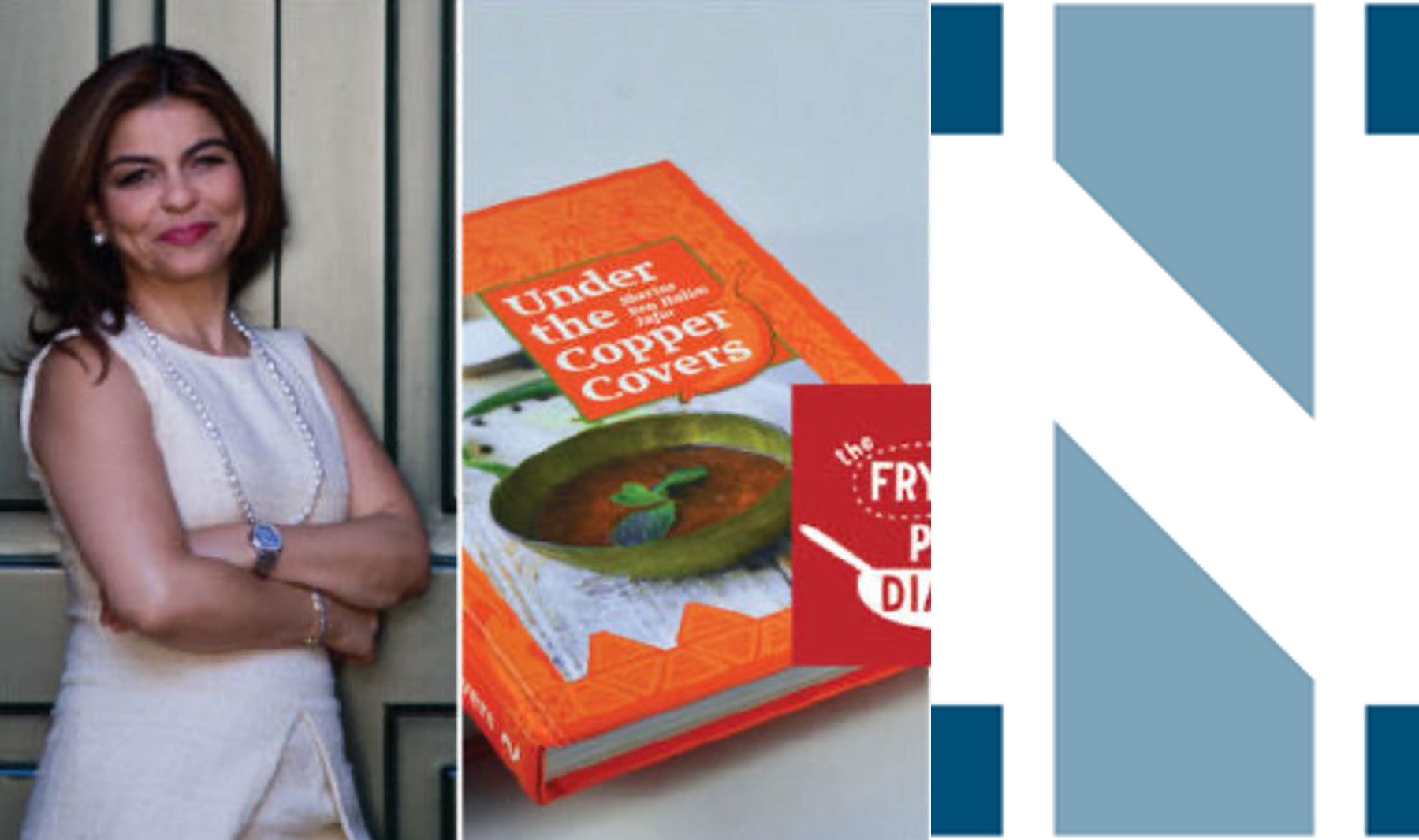
OASIS LIVING
Under the Copper Covers
Sherine Ben Halim Jafar's cookbook stirs up memories of life in exile while celebrating Middle Eastern cuisine.
When Sherine Ben Halim Jafar started writing her cookbook, Under the Copper Covers, she expected it would be a collection of recipes gathered while growing up in the various countries and cultures that have come to define her life: Libya, Palestine, Syria, Lebanon, Iraq and Iran.
But it didn't take her long to realise there was so much more for her to say.
Jafar is the daughter of Mustafa Ben Halim, the former prime minister of Libya. When the 1969 coup shattered the country, her family fled - Muammar Qaddafi wanted Ben Halim dead and nowhere was safe. Thus began a life in exile, a life of death threats, body guards, kidnapping attempts and constant paranoia. Jafar - the youngest of six children - was just 5 years old when it started.
Under the Copper Covers is a first-hand look at what it is like to grow up in a family forced to leave home. Five years ago, when Jafar started writing her cookbook, her childhood memories came rushing back.
"The most incredible thing was how much I managed to remember as I started writing," she says. "It was magnificent. When I actually started writing and I had to go back, it was incredible how much memory there was of events. Things became very clear in the end. It was very cathartic."
In the book, Jafar tells much of her story through a child's eyes. The magnitude of what her family endured - and what a life in exile does to children - is enough to move readers to tears.
"My first panic attack was when my father got kidnapped," she says. "I had just turned 8."
Those panic attacks crippled her.
"In the early days, they were very much present in the person I was," she says. "I used to hide from people. I used to be terrified. If I went to the cinema, they would happen. If I went to the theatre, they would happen. In school, when I felt very unhappy, they would happen. Being away from home, they would happen.
"I was just not functioning at all as a child."
But there was one place where the panic attacks never came.
"Whenever I would go into the kitchen and bake a cake and be with my mother, I was actually quite happy," says Jafar. "I was very content in those times. I felt very nurtured, very protected. I think that was the thing that was very difficult for me, that protection - but I had it in the kitchen."
Before they fled Libya, the Ben Halim family had help to prepare and serve their meals. After they left, Jafar's mother had to learn to cook for her family. She began preparing favourite dishes from her homeland, Palestine, with Jafar at her side.
When Jafar's Libyan aunts came to visit, they taught her how to prepare traditional feasts. And Jafar learnt classic Lebanese dishes during their time in Lebanon.
Later, when Jafar married a man from Iraq, she was thrown into the scents and flavours of Iraqi - and then Iranian - cuisine.
In Under the Copper Covers, as she recounts the gravity of her life in exile, she effectively lightens the journey by interweaving stories of her favourite dishes and how she came to know them. The kitchen becomes a place of camaraderie, of safety, of love.
"Food became important to me because of the life I had," says Jafar. "Food, for me, allowed me to make sense of my origins. That was the only way I could try to touch my identity. It was something tangible."
Jafar's life has now settled down and she lives in Dubai. She has four children, ages 12, 15, 19 and 20. Her father, 94, lives just a few minutes away.
She credits the professional coaching she received while writing her book with giving her the confidence to find her voice. Inspired by what that experience did for her, Jafar is now a life coach herself.
"I need to do this for other people," she says. "I can help other people. We all have a story, but we don't find the voice to tell that story. I want to serve other people. There's nothing that makes me feel happier.
"We all have a lot of wounds. Healing those wounds and feeling that wholeness within ourselves - that's what it's all about."
Oasis Living Magazine review
Review by Stacie Overton Johnson


